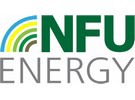As the Brexit deadline is further delayed and details of a trade deal with Europe remain unknown, the potential impact of the UK’s departure from the EU on the country’s agricultural industry is still unclear. The recent BBC series ‘What Britain Buys and Sells in a Day’ gave a good insight into how much the country trades not only with their European neighbours but also with other parts of the world. British agriculture has an excellent reputation for the quality of its produce, with many commodities being sold to premium markets around the globe, while cheaper produce is imported for our own consumption.
Over the decades, consumer expectations have changed, leading to year-round demand for most items. Growers have adapted, with many now using heating and lighting in glasshouses to extend the growing season, but this comes at a significant cost due to the energy and infrastructure required. In many cases, it remains cheaper to import from abroad. Take tomatoes for example; the UK imports more than 80% of its demand from Europe, with 45% coming from the Netherlands alone. In fact, 21% of what the UK spends on vegetables goes to the Dutch. Given that the climates of the two countries is much the same, the economic advantage comes through scale. Westland, near Rotterdam, has 11,000 acres of glass growing 400,000 tonnes of tomatoes, resulting in the highest concentration (kg/m2) of tomatoes in the world.
If and when Brexit does happen, there could be a significant impact on British food imports. For example, additional checks of goods coming into the country could mean delays at the ports, potentially resulting in increased time to market and therefore cost; this is not to mention any additional expenses imposed through trade tariffs. It is possible that trade relationships will change, but unless consumer habits do too, we will likely continue to rely on Europe to supply a large amount of our fresh produce for some time yet. Perhaps, though, if food prices do increase, this will create an opportunity for UK growers to capture a larger market share.
For more information: NFU Energy
NFU Energy
024 7669 6512
www.nfuenergy.co.uk
